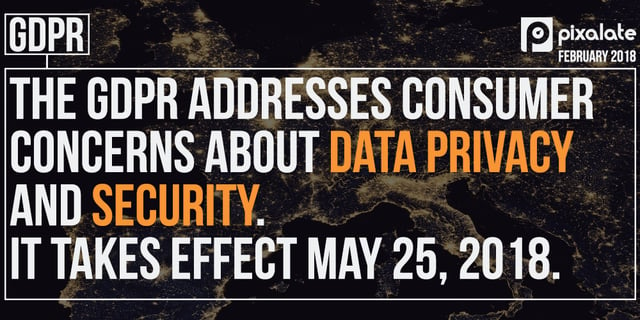
This week's review of ad fraud and quality in the digital advertising space.

The General Data Protection Regulation (GDPR) — a pending EU regulation set to take effect May 25, 2018 — is primed to change the way in which programmatic marketers connect with EU consumers. Pixalate's in-depth blog post examines some of the key takeaways programmatic marketers need to know with the GDPR on the horizon.

Per Reuters, "Facebook Inc will start using postcards sent by U.S. mail later this year to verify the identities and location of people who want to purchase U.S. election-related advertising on its site, a senior company executive said on Saturday." The article added: "The process of using postcards containing a specific code will be required for advertising that mentions a specific candidate running for a federal office."

According to The Drum, citing recent Q4 2017 research from PubMatic, "mobile PMP inventory prices were at a 155% premium, compared to those paid for the average mobile impression available on an open exchange throughout 2017." The article asserts that mobile marketers are embracing private marketplaces as brand safety concerns linger.

"Security researchers have found that hackers are using code-signing certificates more to make it easier to bypass security appliances and infect their victims," wrote ZDNet. The article added: "...hackers and malicious actors are obtaining legitimate certificates from issuing authorities in order to sign malicious code."

A Digiday article rounds up European publishers' latest thoughts on the programmatic ecosystem, including an update on what they think of ad fraud. "I want to understand more about what we know is fraud and what we don’t know is fraud," Digiday cites one publisher are saying. Another added: "I’m still trying to figure out why ad fraud is a publisher problem.”
Sign up for our blog to stay updated with new stats, trends, and analysis on digital ad fraud.
*By entering your email address and clicking Subscribe, you are agreeing to our Terms of Use and Privacy Policy.
These Stories on Weekly Recaps
*By entering your email address and clicking Subscribe, you are agreeing to our Terms of Use and Privacy Policy.

Disclaimer: The content of this page reflects Pixalate’s opinions with respect to the factors that Pixalate believes can be useful to the digital media industry. Any proprietary data shared is grounded in Pixalate’s proprietary technology and analytics, which Pixalate is continuously evaluating and updating. Any references to outside sources should not be construed as endorsements. Pixalate’s opinions are just that - opinion, not facts or guarantees.
Per the MRC, “'Fraud' is not intended to represent fraud as defined in various laws, statutes and ordinances or as conventionally used in U.S. Court or other legal proceedings, but rather a custom definition strictly for advertising measurement purposes. Also per the MRC, “‘Invalid Traffic’ is defined generally as traffic that does not meet certain ad serving quality or completeness criteria, or otherwise does not represent legitimate ad traffic that should be included in measurement counts. Among the reasons why ad traffic may be deemed invalid is it is a result of non-human traffic (spiders, bots, etc.), or activity designed to produce fraudulent traffic.”

